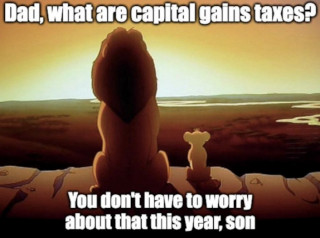[From Pixabay]
Good morning,
How do you stay updated? What do you do when you take a mid-career break? One obvious thing to do is go back to college. That is exactly what Susan Wise Bauer did when she had a child. She was dreading it. But she writes in her book The Well Educated Mind that it didn’t turn out to be as awful as she imagined it would be.
“Over the next year and a half, I was directed toward lists of books and given advice about how to read them. But I was expected to teach myself. I read book after book, summarized the content of each, and tried to see whether the arguments were flawed. Were the conclusions overstated? Drawn from skimpy evidence? Did the writers ignore facts, or distort them to support a point? Where did their theories break down? It was great fun; trashing the arguments of senior scholars who are making eighty times your annual stipend is one of the few compensations of grad-student serfdom.”
All this reading was in preparation for seminars and students would debate the books they read about. “These (more or less) Socratic dialogues built on the foundation of the reading I was doing at home. On evenings when I would normally have been watching The X-Files or scrubbing the toilet, I read my way through lists of required books with concentrated attention. The housework suffered and I missed Mulder’s departure from spook hunting; but I found myself creating whole new structures of meaning in my mind, making connections between theories and building new theories of my own on top of the links. I wrote better, thought more clearly, read more.”
But all this meant she had to stay up late until her child had gone to sleep. With the benefit of hindsight, she asks, did she necessarily have to go back to a graduate school to gain this education “unless you plan to get a job in university teaching (not a particularly strong employment prospect anyway).” This is because “For centuries, women and men undertook this sort of learning—reading, taking notes, discussing books and ideas with friends.”
She recollects a piece of advice Thomas Jefferson offers his nephew on how to read and study best. “While you are attending these courses, you can proceed by yourself in a regular series of historical reading. It would be a waste of time to attend a professor of this. It is to be acquired from books, and if you pursue it by yourself, you can accommodate it to your other reading so as to fill up those chasms of time not otherwise appropriated.”
Get some books and connect with a few friends.
And have a good day!
Transparent AI
Artificial Intelligence has been hitting headlines in the past week after a Google engineer claimed the technology had become sentient, releasing some transcripts of his conversation with Google’s programme, and was dismissed by the company for doing that. (In case you are wondering if it has become sentient, we would say, “no way”. Check out these two pieces, We warned Google that people might believe AI was sentient. Now it’s happening. - By Timnit Gebru and Margaret Mitchell and Nonsense on stilts. No, LaMDA is not sentient. Not even slightly by Gary Marcus)
In the light of this, companies working on AI might say that’s the way the world is, and go on as if there is nothing one can do about such debates. That would be easy—and wrong.
In Harvard Business Review, Reid Blackman and Beena Ammanath (authors of Ethical Machines and Trustworthy AI, respectively) say companies need to be more transparent.
It decreases the risk of error and misuse: “If the product team doesn’t explain how to properly handle the outputs of the model, introducing AI can be counterproductive in high-stakes situations.”
It enables internal and external oversight: “As with any other high-risk situation, oversight is needed both to catch errors made by the technologists and to spot potential problems that technologists may not have the training for.”
It expresses respect for people: “Transparency about whether an AI is being used, what it’s used for, and how it works expresses respect for people and their decision-making abilities.”
Dig deeper
What parents must know
Last week, when in conversation with a teacher based in Sydney, as if on cue, she picked up the voices of concern we were sharing. That kids in urban India are having a tough time. Her experience as a teacher has it that it is tougher for teenage girls. But most parents are unaware of what is going on and how to deal with it. She pointed us to a conversation with Madonna King, award winning journalist and author. King arrived at her conclusions after speaking to over 1,000 teens, parents and experts.
“Eating disorders, self-harm, school refusal, anxiety, depression and suicide ideation are all on the rise,” she told ABC News.
“One girl said schools have their priorities wrong: ‘they care more about uniform, hair, makeup and things like that, rather than more important issues like bullying, mental health and general wellbeing.’
“Social media has reduced their lives to a comparison. They know it’s fake, but they can't help comparing themselves to those perfect images popping up on their screens. They even know their social media addiction is toxic but struggle to know how to handle it.”
The themes she has touched upon are important and urgent.
Dig deeper
The year ahead

(Via WhatsApp)
Found anything interesting and noteworthy? Send it to us and we will share it through this newsletter.
And if you missed previous editions of this newsletter, they’re all archived here.
Warm regards,
Team Founding Fuel

